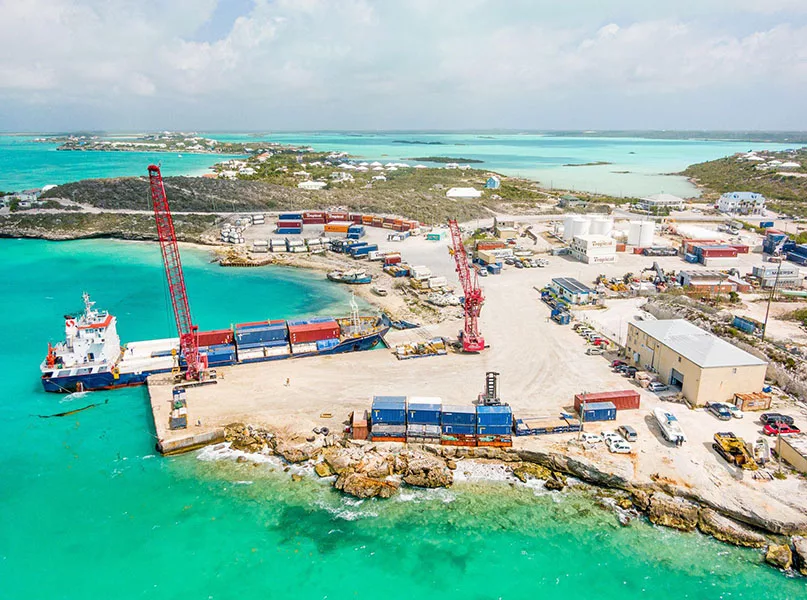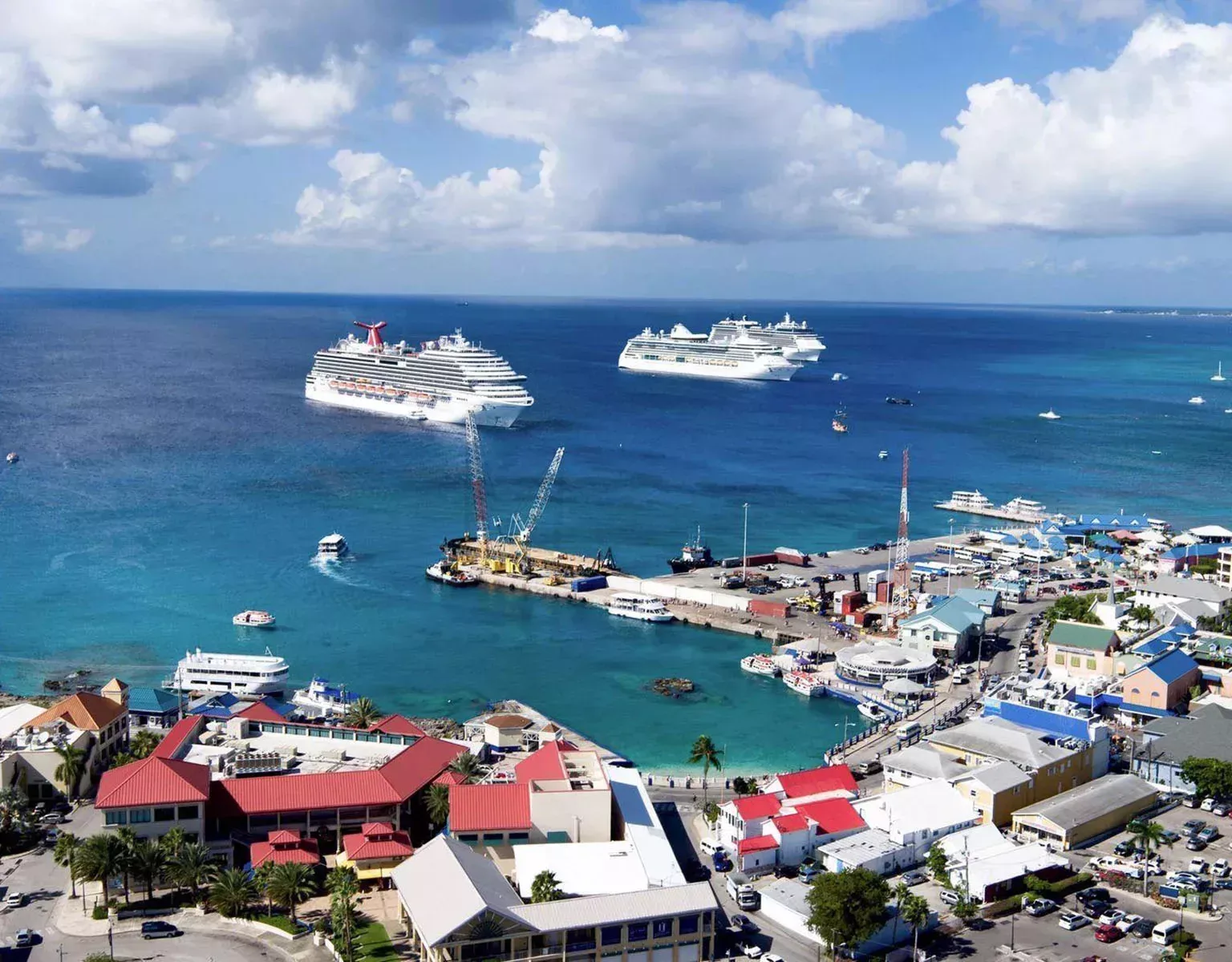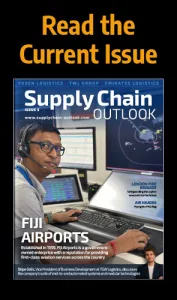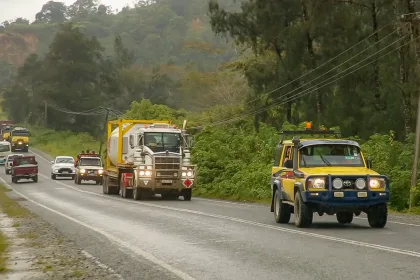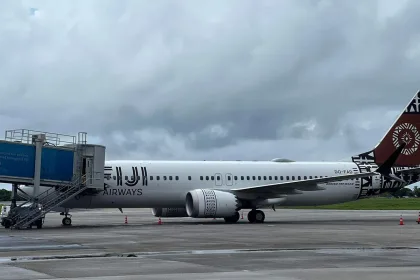The Port Management Association of the Carribean (PMAC) shine a light on the need for regional integration and improved performance management across the island nations of the Caribbean.
INTRODUCTION
The idyllic azure waters of the Caribbean have long seduced seafarers and wanderers alike. Although the island-strewn region continues to be a magnet for the recreational boating industry, the maritime and ports logistics structure connecting both the islands, and the wider Caribbean with the rest of the world, is in dire need of development.
The importance of upgrading infrastructure and streamlining operations cannot be underplayed in a region that is practically entirely reliant on imports. The Caribbean’s geography encompasses 13 sovereign island states and 12 (British, French and Dutch) overseas dependencies with different tariffs, creating a complicated and costly landscape for transporting cargo. In addition to diverse tariffs, each island adheres to varying maritime, customs and port policies that have given rise to the need for standardization and the implementation of uniform rates.
With infrastructure mostly dating from the 1960s, ports across the Caribbean are generally considered inefficient and lagging behind in the context of global development where such entities are now defined by advanced industry trends including digitalization and the implementation of smart ports. The region’s economic potential and growth opportunities are rich and varied, however, the Caribbean is still overcoming the devastating impact of the COVID-19 pandemic, and the aftermath of natural disasters to which the islands are prone. If the Caribbean is to rise in competitiveness and relevance on the global maritime stage, progress relies on two major areas: unlocking true regional integration, followed by the advancement of port management and performance improvement, both tenets upon which the Association was founded.
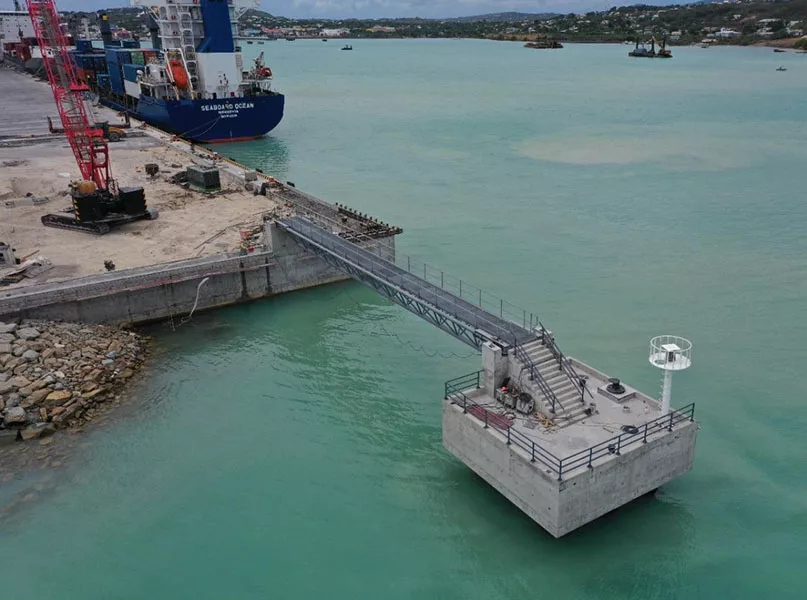
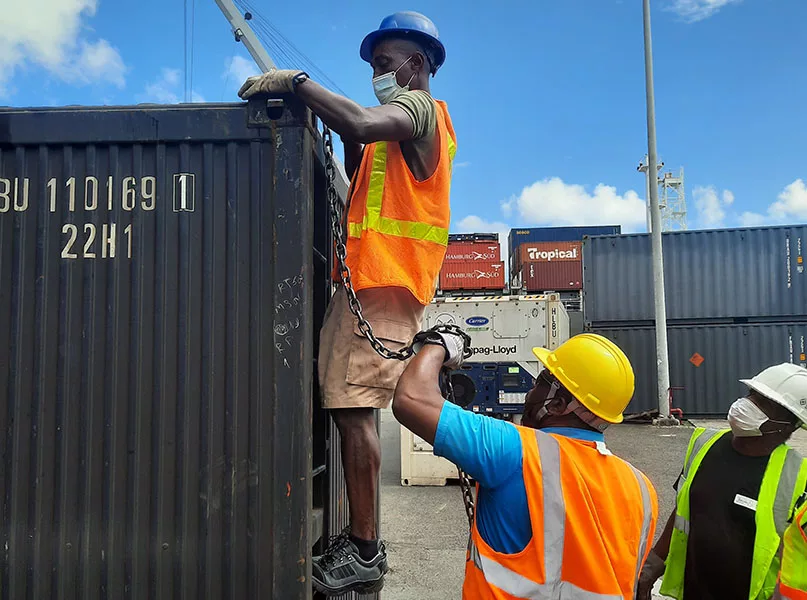
Q&A WITH DARWIN TELEMAQUE, CHAIRMAN, PORT MANAGEMENT ASSOCIATION OF THE CARRIBEAN (PMAC)
From PMAC’s base in Barbados, Chairman, Darwin Telemaque, unpacks the need for development to create a globally competitive maritime environment for the Caribbean
Firstly, could you talk us through PMAC’s inception and why it was founded?
Darwin Telemaque, Chairman (DT): The Port Management Association of the Caribbean (PMAC) conducted its inaugural meeting in Antigua on 26th June 1998, having succeeded the Port Management Association of the Eastern Caribbean (PMAEC) established on 16th May 1988, under the auspices of NovaPort International Consultants Limited of Canada. The PMAEC was originally conceived as a forum where port managers, recognizing the remarkably similar challenges faced, could seek counsel and freely discuss solutions. However, driven by the need to forge closer regional ties in response to various developments within the industry, the Association extended membership to the wider Caribbean, having been reconstituted as PMAC.
What are some of the main trends currently facing the sector in the Caribbean?
DT: As with all industries, we are still experiencing challenges in the supply chain. The inflationary impacts that we are facing are extraordinarily painful, especially in the private sector.
I think that the Caribbean has never had a global posture from a port and transport perspective – we have always lagged behind. This means that when you do see various industry trends develop, it has more of an impact on the Caribbean since most of our ports, having been initially constructed in the 1960s as break-bulk ports, were not predominantly conducive to containerization.
To move forward with continued globalization, the main thrust of transport trends lean towards digitalization, smart ports, utilizing the Internet of Things (IoT), and installing various types of terminal operating systems – all of which are not yet present in the Caribbean.
From a functional perspective, we are still not yet trending at the same pace as the global marketplace. This is mainly because collectively we are a net importer – we export miniscule fractions compared to what we import. Therefore, if there is any inflation in the world, we import that too, and that inflationary impact is then multiplied at the point of sale in any of our markets. To be honest, we are feeling that pinch at present.
As a result, you have a high level of low trade facilitation and very limited trade facilitation processes. Therefore, we are in a space that is ready to receive the next level of advancement to become more globally competitive.
Before we start to posture in a global phase, we need to take a few steps to regularize our structure and operational functions to modernize our various systems. This includes our legislation, our tariffs, and our labor laws to ensure we have a smooth and functional transport and maritime environment before we start to see how we can fit into global trends.
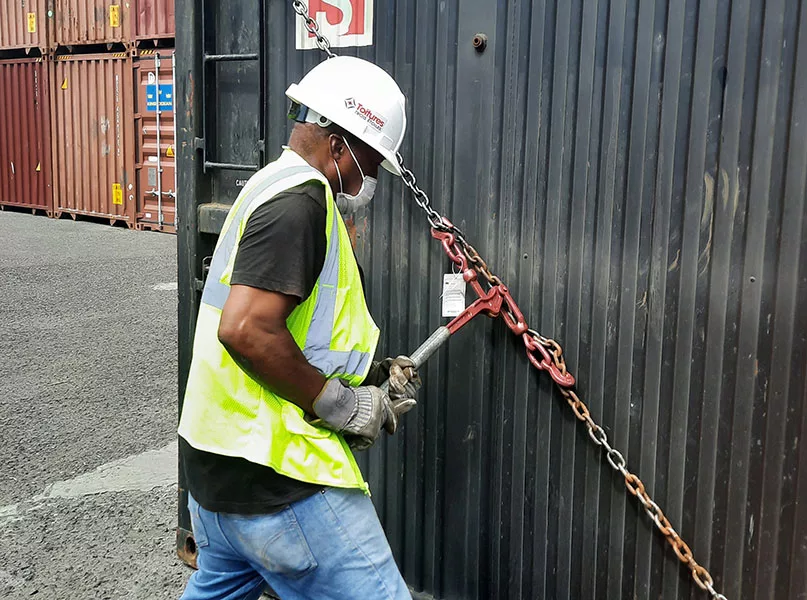
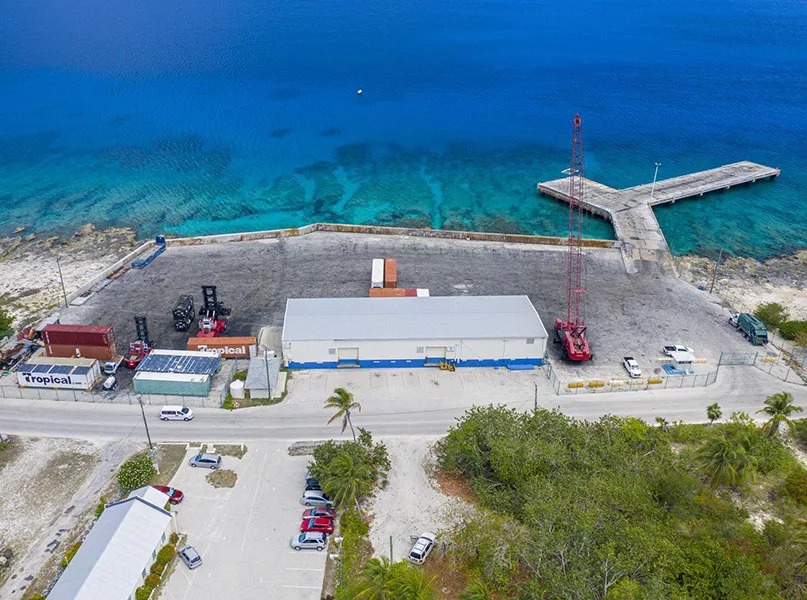
What are some of the greatest challenges that you currently face and what tactics are the Association employing to overcome them?
DT: Our primary challenge is a lack of appropriate port infrastructure and the resources to work towards port digitalization while faced with ongoing supply chain disruptions and its corresponding impacts. The sector faces a paucity of investment into shipping options, meaning there are no new shipping services.
Working across many different islands involves different tariffs, rather than a seamless space through which cargo can traverse. Due to this lack of standardization, shipping lines often leave the Caribbean frustrated by the lack of coordination and collaboration which drives up costs, reduces profits, and creates an unpredictable business environment. Generally, I would say that decisions in the sector are made using emotions rather than facts and data, and there is no region-wide support for a single hub to leverage economies of scale, as exemplified by Miami.
PMAC is employing various strategies to overcome these challenges. To drive regional integration, we are gaining recognition as an authoritative source of information for research and collaboration with regional governments, international organizations, and industry partners. In addition, we continue to provide technical support to regional governments, ports, and industry stakeholders while monitoring developments and building closer cooperation. We coordinate the relevant response of member ports to industry changes and requirements, and facilitate improved networking, information sharing and mutually beneficial alliances with industry stakeholders to expand membership among regional ports.
We advocate for our member ports by facilitating the development of a uniform and sustainable philosophy regarding the attainment of common, mutually beneficial objectives, such as uniformed regional tariff rates.
In addition, to improve port management and performance, we provide leadership in the promotion of professionalism regarding port administration and operational matters across the Caribbean. We are collaborating with many of the regional ports in the development of improved training, quality systems and standards, and creating a network to identify best practices in port operations. Finally, we are establishing the Port and Logistics Data Intelligence Platform (PLDIP), a shared data platform to serve the needs of regional governments, ports, and industry stakeholders.
Are there any exciting projects either ongoing or in the pipeline that you would like to highlight?
DT: We are currently working on the following initiatives:
• The launch of a sustained program incorporating international certification of PMAC training via the Chartered Institute of Logistics and Transport (CILT) endorsement.
• The establishment of the PLDIP across member ports.
• The development of an effective social media program including utilization of the updated PMAC website.
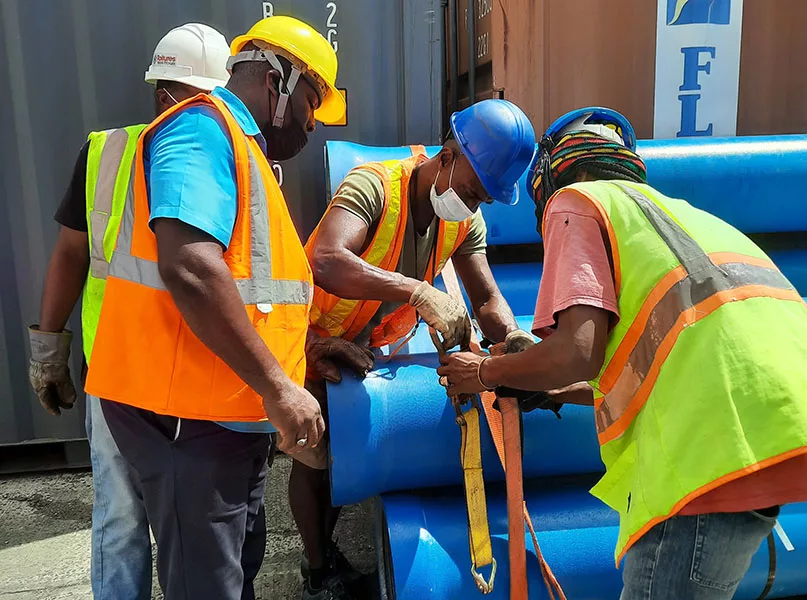
What are PMAC’s key priorities for the future?
DT: The reason for the formation of PMAC was to facilitate industry knowledge among regional ports. We want to ensure that small ports have a voice where they can share not only their concerns, but also their successes, best practices, and innovative steps they have taken.
While the ports themselves are not natural breeding grounds of the highest level of efficient port management systems, the idea behind PMAC is to bring together the best components that we have. Since all ports have similar legislation and functions and are the principal facilitators of imports to the country, we have to harness better experiences and better outcomes and share them across the board so that we are all learning and growing from those advancements.
Over the years, PMAC has grown in experience and modern leadership. Our core focus going forward must therefore address the issue of human capacity. The modernization of our ports from an infrastructure and digitalization perspective will work towards improving the corporate governance structure that exists over our ports and the legislation that allows our ports to exist, as well as some of the other archaic structures and tariffs. These are the mandates that we believe PMAC needs to address, and we will continue to focus on going forward.
For the immediate future, we are calling 2023 a year of training. We had our first training session with all the human resources (HR) and development training managers for all primary ports a few weeks ago where we introduced the concept and the idea that we are not just going to have training, but we want the HR managers to do an audit in their various organizations and identify the gaps and limitations that exist, so that we can design the actual training to specific needs rather than taking a shotgun approach.
We are not only targeting the problem, but we want to be resolution-oriented to see the transformation, and work towards having that transformation result in better outcomes for the individual ports, the respective countries and the Caribbean region.
